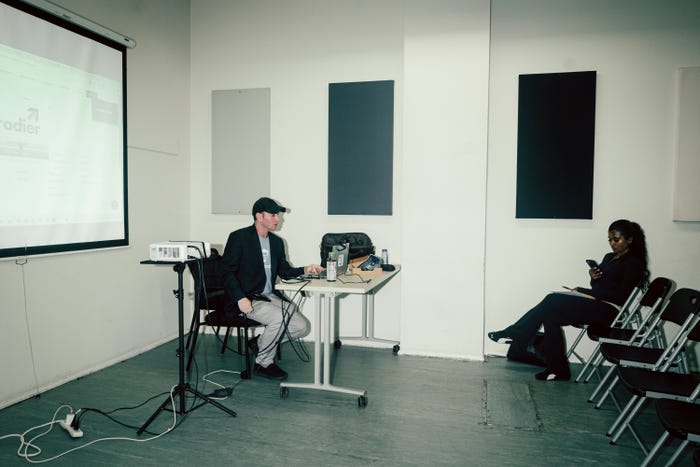
UPDATE: Day traders are speaking out about the profound loneliness that accompanies their pursuit in the stock market, an urgent issue affecting many in the investing community. As trading gains popularity, a growing demand for connection highlights the isolating nature of this niche profession.
Day trading is often viewed as a lucrative opportunity, yet many traders confess to feeling profoundly alone. According to a recent study, crypto traders and “real-time platform users” scored significantly higher on the UCLA Loneliness Scale compared to traditional investors. This trend signals an urgent need for community among those navigating the volatile markets.
Daniel Alhanti, CEO of the trading education platform TraderDaddy, emphasizes the isolation inherent in day trading. “I like to call it a very lonely sport,” he stated, comparing it to individual sports like professional tennis or golf. Alhanti has witnessed a surge in interest in trading groups, attributing this to a shared desire for connection among traders.
Young trader Enrique Rendon, 20, is among those who feel the isolation. He dedicates five to six days a week to market analysis but acknowledges the loneliness that comes with it. “I’ve come to accept the fact that if I’m going to take this road, this path, obviously it’s the downside,” he shared.
Melissa Avutan, CEO of BullMentor, created her platform to combat the loneliness she experienced as a trader. She notes that trading requires intense focus and time commitment, often leaving individuals feeling isolated. “You spend so much time on it,” Avutan remarked, explaining how traders can feel unsupported when facing losses.
In Seattle, Mark Lacy, 67, spends approximately six hours daily monitoring the market. While he fills the silence with news channels, he admits that he occasionally feels lonely. “I’ll wish that I had somebody to go out to dinner with,” Lacy commented, highlighting the sacrifices traders often make for success.
Similarly, Kenneth Schweitzer, 68, based in Vermont, considers the isolation a requirement for full-time trading. Having spent decades in healthcare, he finds solace in his new career, stating, “It’s a relaxation.” He believes many traders are drawn to this lifestyle precisely because it allows for independence.
The demand for community is growing rapidly, with Google Trends indicating a 572% increase in searches for “day trading group” over the last quarter. Furthermore, interest in “day trading class” has soared by 700%, and searches for “day trading coach” have risen by 325%. This surge suggests that traders are actively seeking out ways to connect and learn from one another.
Alhanti is addressing this need by hosting nightly Zoom calls and monthly in-person classes in Manhattan, fostering a sense of teamwork. “The goal is to take this from a lonely sport, something you do by yourself, to a team sport,” he stated, emphasizing the importance of collaboration in trading.
As the trading community grapples with the emotional toll of isolation, the call for connection has never been more urgent. Traders are increasingly recognizing that sharing experiences and strategies can alleviate the loneliness that often accompanies their profession.
For those considering day trading, the path may come with emotional challenges, but the potential for community and support is rising. As traders navigate this solitary journey, the development of connections may transform the landscape of day trading into a more collaborative environment.





